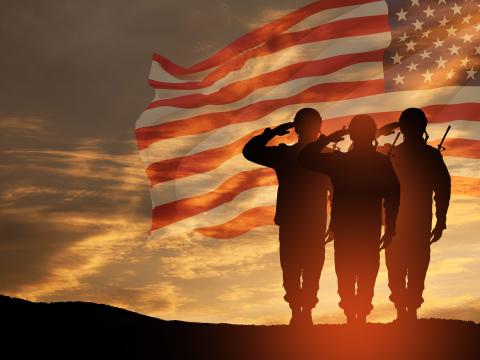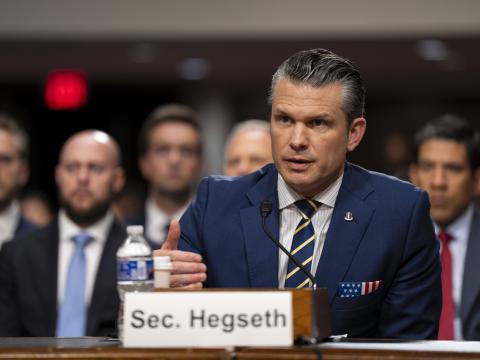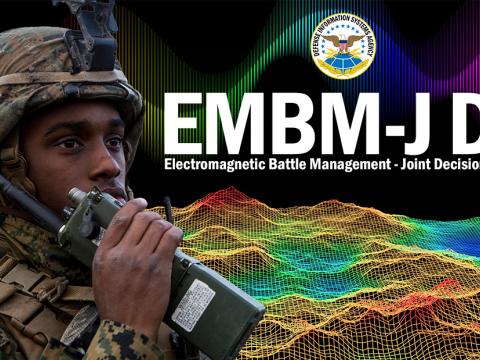Help a Veteran--Offer a Job
Two U.S. Army officers who recently returned from deployments to Iraq each have the same advice for industry members who want to help soldiers-hire troops when they separate from the military.
Two U.S. Army officers who recently returned from deployments to Iraq each have the same advice for industry members who want to help soldiers-hire troops when they separate from the military. In my article "Iraqis Advance Toward Self-Security," in this issue of SIGNAL Magazine, Maj. James Trimble, USA, signal officer of the Army's 1st Advise and Assist Brigade, 3rd Infantry Division, describes the successes and challenges of his unit's year in Iraq. He also discusses his interest in the welfare of his soldiers and what happens when they leave military service. Specifically, their need for jobs in the civilian world. Maj. Trimble explains that hiring authorities should feel confident that not only do warfighters have skills and training relevant to the commercial sector, but they also have experiences only available to those who serve. In another "Voices From the Field" article scheduled to appear in SIGNAL's February issue, Lt. Col. Randolph Wardle, USA, signal officer for the Army's 1st Armored Division, also encourages businesses to hire his troops, not just to help them, but to improve the bottom line in the communications field or any other area of focus. He says:
These kids pay their own money to get training and certification so they can get better at their jobs ... Take what they know; take their knowledge and discipline; hire these kids; and you'd be amazed what they can do.
Unfortunately for separating service members and veterans, the job numbers are not good. In December 2010, even as overall national unemployment figures dropped, the rates for veterans who have served since 9/11 rose from 10 percent in November to 11.7 percent, according to the Bureau of Labor Statistics. On a more positive note, some companies and organizations are taking heed of the value of military experience. Microsoft Corporation, for example, awarded grants late last year under its Elevate America Veterans initiative to fund efforts that offer education, job training and placement programs to the military community. Able-Disabled Advocacy Inc., Bellevue College, Goodwill Industries of Southern Piedmont Inc., the Gulf Coast Workforce Board, Per Scholas and Veterans Inc. all received cash and software grants for certain programs that they administrate. They all will receive funding for the next two years to provide veterans with a comprehensive set of services including technology skills, training, job placement, career counseling and other support such as childcare, transportation and housing, according to Microsoft. The corporation also has made additional grants and sponsors more programs to assist veterans with jobs and training. And it is not alone. In June 2010, I highlighted other organizations that help the military community with employment needs in SIGNAL Connections "Homefront Help" column. Do you work for an organization that has processes in place to help members of the military community find jobs? If so, what are they and how do they work? What else do you think the country can do to help veterans obtain satisfactory employment? If you're a veteran or military family member or if you are on active duty, how can the civilian world help with your job search? Do you have recommendations for military members looking for a job now or in the near future?




Comments